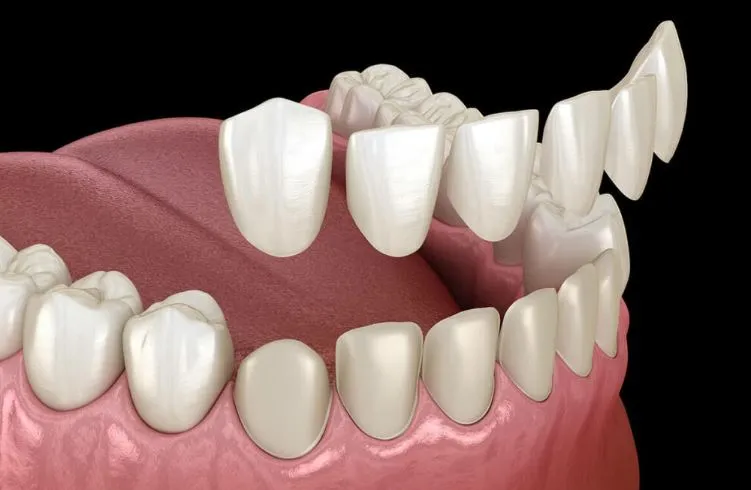What You Need to Know Before Getting Veneers



Dental veneers have become one of the most popular cosmetic dental treatments, offering a dramatic way to transform your smile. Whether you are concerned about chipped teeth, discoloration, or minor misalignment, veneers provide a long-lasting solution that enhances both appearance and confidence. However, this procedure is not a one-size-fits-all solution. At Chaska Family Dental, we guide each patient through the decision-making process to ensure they understand what veneers involve, what results to expect, and how to maintain them for years to come.
As a leading Dentist in Chaska, we believe patients should be well informed before undergoing any cosmetic treatment. Veneers can deliver beautiful outcomes, but they also require careful planning, a skilled provider, and long-term commitment. This guide will help you understand what veneers are, the preparation involved, who makes a good candidate, and what to expect after placement. If you are considering a smile makeover, this information will help you make a confident, informed choice.
Veneers are thin, custom-made shells typically made of porcelain or composite resin. They are bonded to the front surface of teeth to improve their color, shape, size, or overall appearance. Veneers are most often used on front teeth and can be applied to one or several teeth, depending on the desired outcome.
Porcelain veneers are the most durable and stain-resistant option. They closely mimic the natural translucency of enamel and are typically fabricated in a dental laboratory for a precise fit. Composite veneers are a more affordable alternative, made from the same material used in tooth-colored fillings. While they can be placed in a single visit, they are generally less long-lasting and may stain more easily.
The veneer process typically involves:
The result is a natural-looking, uniform smile that blends seamlessly with the rest of your teeth. At our Dentist Chaska practice, we design veneers to suit your unique facial features, skin tone, and smile goals, rather than relying on a one-size-fits-all approach.
Veneers can correct a variety of cosmetic concerns, but they are not appropriate for everyone. Understanding whether you are a good candidate begins with a complete dental evaluation.
Ideal candidates for veneers typically have:
Veneers are not intended to correct major bite problems or severely misaligned teeth. In these cases, orthodontics or restorative treatments may be recommended first. Patients who grind their teeth heavily (bruxism) may also require a nightguard to protect their veneers from damage.
During your consultation, your Dentist in Chaska will examine your oral health, discuss your aesthetic goals, and determine if veneers are the most appropriate option. In some cases, other treatments like whitening, bonding, or Invisalign may offer similar results with fewer alterations to the natural teeth.
Veneers offer many advantages, but they also come with significant responsibilities. Patients should weigh the benefits against the long-term commitment and cost of care.
Benefits of veneers include:
Considerations include:
Because veneers are considered a cosmetic procedure, they are not typically covered by dental insurance. The total cost depends on the number of veneers placed, the material used, and the complexity of the case. Our team at Chaska Family Dental will provide a detailed treatment plan, including estimated costs and options for financing, so that you can plan accordingly.
Once veneers are placed, maintaining your new smile requires consistent care and attention. While veneers are strong and stain-resistant, the underlying teeth and surrounding gums still need routine maintenance to stay healthy.
Post-veneer care tips include:
Patients should continue regular dental visits every six months for cleanings and exams. While veneers are durable, they are not indestructible. If a veneer chips, cracks, or separates from the tooth, it will need to be repaired or replaced.
We educate every veneer patient at our Chaska office about proper maintenance and schedule follow-up visits to monitor their progress. Our goal is to ensure your smile looks and functions beautifully for as long as possible.
Are you considering veneers to improve your smile? Do you have questions about how they compare to other cosmetic options? Share your thoughts or ask us about scheduling a consultation. We are here to support your journey to Happy, Healthy Smiles.
Veneers offer a transformative solution for patients seeking a brighter, more symmetrical smile. When planned carefully and executed by an experienced provider, they can boost your confidence and leave a lasting impression. However, veneers are not a casual or temporary fix—they require commitment, investment, and a foundation of healthy teeth and gums.
At Chaska Family Dental, we guide each patient through the decision-making process with transparency, precision, and personalized care. Whether you are interested in a full smile makeover or a subtle correction to a single tooth, our team will help you explore your options and make the choice that aligns with your goals. If you are searching for a “Dentist Near Me” who offers expertise in cosmetic dentistry and a commitment to long-term care, we invite you to experience the difference at our Chaska dental practice.
Schedule your veneer consultation today and take the first step toward a confident, beautiful smile.
How long do veneers typically last?
Porcelain veneers can last 10 to 15 years or longer with proper care and maintenance. Composite veneers usually last 5 to 7 years and may require more frequent repairs.
Do veneers require special care or products?
No, but patients should use a soft toothbrush and non-abrasive toothpaste. Floss daily and avoid biting hard objects that could damage the veneers.
Can I whiten my veneers later?
Whitening products do not work on veneers. If your natural teeth change color over time, you may need to whiten them or replace the veneers to maintain a consistent appearance.
Will getting veneers hurt?
Most patients experience minimal discomfort. Local anesthesia is used during tooth preparation, and mild sensitivity may occur temporarily afterward.
Are veneers reversible?
Because a small amount of enamel is removed, veneers are not considered reversible. Once placed, they will need to be maintained or replaced over time.